
Sophie Robertson
 Associate
Associate
Sophie joined Bermans in 2019 and is an Associate in our Liverpool Employment team.
Continue Reading
 Associate
AssociateSophie joined Bermans in 2019 and is an Associate in our Liverpool Employment team.
Continue Reading
 Partner
Partner
Robert qualified as Solicitor in 2008 and joined Bermans in July 2019. He then became a Partner in the Employment team in 2022.
He has previously worked for industry recognised legal providers, including an employment boutique firm in Manchester.
He is known for delivering strategic and commercial advice to clients and advises clients in different sectors. He has also contributed to industry journals and national press with articles on employment law issues.
Robert has acted for a wide range of clients ranging from OMB’s to large national and international companies, however he has a particular focus on owner managed SME’s.
Robert regularly advises on complex internal HR and employment law issues as well as business re-organisations, restructures and TUPE transactions. He is particularly experienced at representing clients in the Employment Tribunal and regularly appears as an advocate.
Email: Robert.maddocks@bermans.co.uk
Tel: 0161 827 4617
Continue Reading We met up with Guy Remond, Founder of thestartupfactory.tech (pictured left) for our latest client focus Q&A.
We met up with Guy Remond, Founder of thestartupfactory.tech (pictured left) for our latest client focus Q&A.
1) What is your business?
I co-own and own two businesses. The first is thestartupfactory.tech, which helps tech start-ups build their product, prepare and then execute rapid growth. thestartupfactory.tech is made up of an eclectic mix of experienced commercial operators and software engineering leaders and engineers. We want to talk to entrepreneurs who have a great tech product idea in a sector they have extensive experience in. thestartupfactory.tech works with a network of trusted companies who we can bring in to support the start-up as and when required. Bermans is one of our trusted advisors in this network.

My second business is Sky Blue Consulting (a brand of Sky Blue Financial Investments Ltd.) – using the knowledge gained from earning numerous badges and scars over many years running businesses, I help companies prepare for and execute on rapid growth. I also invest in these businesses, sharing the risk as well as the upside. This means I only work with a limited number at any one time.
2) Which solicitors do you use at Bermans and how do we compare to other firms?
Jon Davage and Robin Hastings were the main lawyers who advised us through the acquisition of my previous company Cake Solutions which was acquired by BAMTECH INC. which is now owned by The Walt Disney Company. Jon and Robin used their experience to mitigate risk for scenarios I never saw coming, saving the shareholders significant sums of money.
Andrew Koffman has supported the Cake shareholders with some commercial work.
Robin Hastings has supported thestartupfactory.tech with contracts with some of our clients.
A number of Bermans lawyers have supported thestartupfactory.tech clients in a number of different ways.
Bermans have extensive experience in working with tech start-ups, have often exceeded our expectations and share the same high growth ambition as my clients.
3) What are the biggest challenges you face in growing your business and maintaining profits?
Both thestartupfactory.tech and Sky Blue Consulting do not look for quick profit; we want to work with ambitious companies who we help build a solid foundation for growth with the expectation that we will make money further down the line based on the success of the client. A genuine shared risk scenario.
4) Tell us about your typical working day?
I feel very privileged that I am in full control of what I do each day. I work hard and aim to work with like-minded people who have ambition, drive and talent. The net result is that my week is incredibly varied, a mix of trips to meet with my clients, video conference calls and some time in the office and home office.
Increasingly I am trying to mix work with exercise and quality sleep. I also make sure that I am very active socially, with colleagues, friends and family.
5) What has been a highlight for your business over the last 12 months?
Sky Blue Consulting has only just been set up, however, I am very happy with how things are going with the first three companies I am working with under this brand.
However, thestartupfactory.tech is the real success story. We have worked with or are working with 11 companies in the first two years of operation. Ian Brookes, Cake Solutions’ ex non-exec director and an incredible mentor to myself, has build and lead the team with great success. thestartupfactory.tech team can be justifiably be proud of how they have supported and continue to support the companies we have worked with to date.
Several of the companies are now ploughing ahead under their own steam with a great product and growing teams. I am really excited to see how they get on in the coming years.

6) What are your plans for your business for the year ahead?
Having left school at 17 and following the successful acquisition of Cake Solutions, I am taking quite a bit of time off this year to reenergise and spend quality time of with family and friends. I have purposefully kept the number of companies I am working with this year low.
I look forward to continue to work with thestartupfactory.tech team in 2020 and building a solid portfolio of companies I invest in and help them build a platform for high growth through to greater success or acquisition.
7) Is there are sector or industry that you are strong in or looking to develop opportunities?
thestartupfactory.tech works with tech product companies. Through Sky Blue Consultancy I am already working with a mix of companies, in the financial sector, marketing sector and in the health sector.
8) If you were chancellor, what single change would you make to help improve the economy and/or your business?
The SME sector in the UK is world class and I would hope that any government, in particular the Chancellor, will continue to support SME’s. We have to actively encourage the next generation of entrepreneurs with policies that support them and the businesses they create and build.
There will be more change in the world of business in the next 10 years than in the last 30, driven by the massive impact technology will have as well as global issues such as climate change, the ever increasing population and instability within regions around the world for any number of reasons.
The government has a responsibility to keep up much quicker with these changes so it can effectively support the entrepreneurs who will help solve some of these issues far quicker and more efficiently than any government can.
9) What are your passions away from business?
I am fortunate to have a very healthy social life and I really enjoy travelling whether it be on business or personally.
Other than my family and friends my other big passion is following Manchester City, having gone to most home games since I was 8. My dad has been going since he was 8 and now my children are keen supporters. I love going to watch the game with family and friends.
10) Do you have any business tips to share with our readers?
I think the most important thing you need to build a successful company is to build a team around you so you can operate extensively in your areas of unique ability and they are all operating in their areas of specialism and unique ability.
By working towards this goal, a great idea and a clear vision, everyone will be increasingly happy. They will be working efficiently and providing you with the platform you need to achieve high growth, a healthy bottom line and ultimately success.
Contact
If you would like to speak to Guy please email him on guyr@thestartupfactory.tech
In April 2019, Bermans topped the professional poll for choice of legal services for both +£100k and sub £100k funds out in Business Money’s report of the UK invoice finance sector.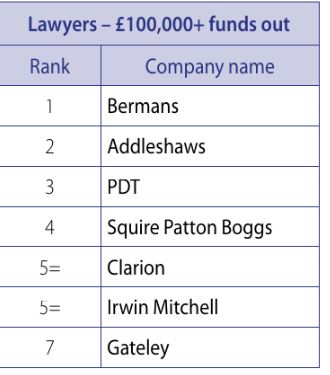
The professionals poll rankings are voted for by asset finance providers who are asked about their choice of professional when acquiring a lawyer amongst other professional sectors.
The summary quotes:
“If Bermans was the only law firm to make a significant showing in the sub-£100,000 category it also topped the £100,000 funds out poll amongst a dozen finance houses.”
Continue Reading
Administrative Receivership
Prior to 2002, creditors holding a charge over a company’s assets (usually a bank), had the right in certain circumstances to appoint a receiver. A receiver was an Insolvency Practitioner who acted on behalf of the creditor. Its duty was to take custody of the company’s assets and exercise powers with a view to satisfying the debt owed to the creditor.
In 2002 the law changed and restricted the use of this procedure to certain types of companies or floating charges created prior to September 2003. For this reason, administrative receiverships are rare (in 2018 there were only a handful in the UK).
LPA Receivership and Fixed Charge Receivership
LPA receiverships and fixed charge receiverships are different to administrative receivership.
Under the Law of Property Act 1925 (LPA), creditors (usually banks/lenders) that hold a fixed charge over property have a statutory right to appoint an LPA receiver.
A fixed charged receivership is when a creditor who has a fixed charge over a company’s assets, has the power under the terms of the security documentation to appoint a receiver.
In these situations the receiver will have powers to help realise the debt owed to the creditor by taking charge of the assets/property. This could mean selling the assets that are the subject of the charge or managing them and collecting the rent for the benefit of the lender.
What can you do if a receiver is appointed in respect of your company’s assets?
We are experienced in advising both lenders in respect of the appointment of receivers, receivers in relation to legal issues arising from the exercise of their powers and companies facing receivership which gives us valuable experience in advising on this specialist area.
If you receive a formal demand from a lender indicating their intention to appoint a receiver, or a receiver has been appointed in respect of your company, it is critical that you seek urgent advice.
We regularly advise companies on the validity of the appointment of a receiver, their rights and the best course of action. We offer practical, commercial advice rather than just restating the law.
Continue ReadingInsolvency is defined in the Insolvency Act 1986, but broadly it means when a company does not have sufficient assets to discharge its liabilities as they fall due.
If this occurs, there are options open to the company owners and other stakeholders, one of which is administration. Administration is an insolvency process where an insolvent company is placed under the control of an insolvency practitioner (IP) to enable the IP to achieve objectives laid down in legislation.
How does a company enter administration?
There are two ways for a company to enter administration:
Why would a company or its directors put it into administration?
From the date that an application is made to court or a notice of intention to appoint administrators is filed, a moratorium in respect of claims will apply to protect the company against actions from creditors. In general terms this means that creditors will not be able to issue proceedings, HMRC will not be able to distrain or issue a winding up petition against the company and the landlord will not be able to forfeit its lease. If the company is concerned that creditors may issue proceedings then administration can provide some short term protection, allowing the company to restructure.
Often companies that enter administration end up being sold or at least their businesses and assets do. Sometimes a sale is agreed prior to the company going into administration and it may be a term of completing the sale that the company is put into administration first. Such sales are known as pre-packs. Pre-packs can be a relatively quick and smooth way to continue the business with as little disruption as possible.
What are the objectives of the administration?
The first objective of an administrator is to rescue the company so it can carry on as a going concern.
If this isn’t possible then the aim is to achieve a better result for the company’s creditors than would be likely if the company was put into liquidation. If such a better result cannot be achieved, then the objective is to realise the property of the company and distribute the proceeds to the company’s secured and preferential creditors in the first instance.
Next steps
If your company is experiencing financial difficulties and you are considering administration please get in touch. We can provide initial advice about your restructuring options and introduce you to an IP.
If you are considering purchasing a business or assets from an administrator, please get in touch. We have a wealth of experience in structuring pre-pack sale agreements and advising individuals and companies on purchases of distressed businesses and assets
Continue Reading We met up with Jennifer Rigby, Managing Director at Professional Witnesses Ltd (pictured left) for our latest client focus Q&A.
We met up with Jennifer Rigby, Managing Director at Professional Witnesses Ltd (pictured left) for our latest client focus Q&A.
Bermans property team offer a personal conveyancing service for the following types of residential property:
Our conveyancers are experts in guiding you through the legal process and you can be safe in the knowledge that they are supported by our larger commercial property team.
Whether you are buying or selling or refinancing we can provide you with cost certainty and confidence that you are in safe hands.
We provide a list of our headline rates below but we like to provide a specific quote to suit your needs so do get in touch and we will provide a fixed fee quotation.



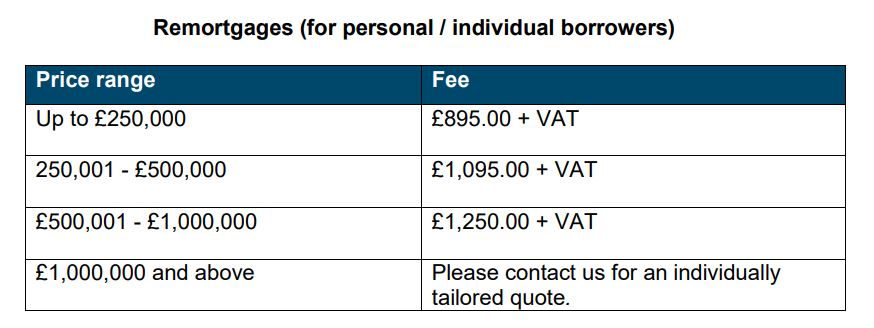
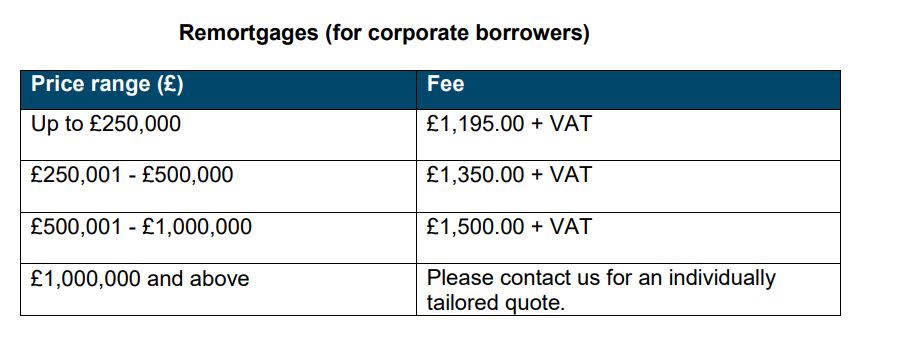
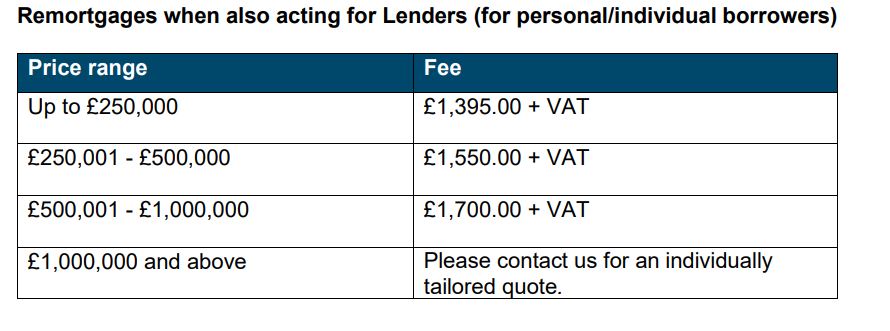
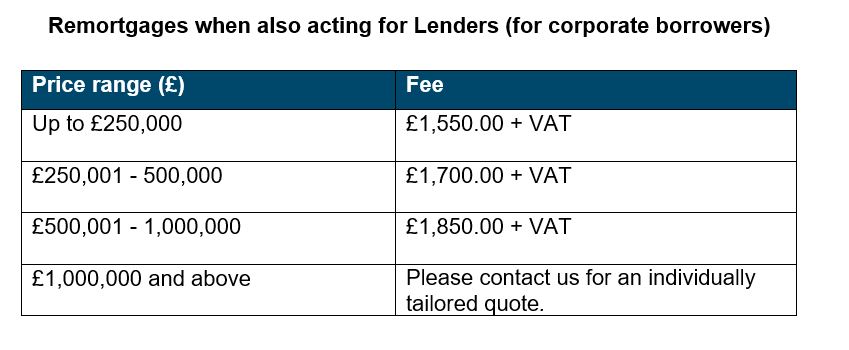

PLEASE NOTE
These fees exclude disbursements and any Stamp Duty Land Tax payable to HM Revenue and Customs.
Continue ReadingOur pricing for bringing and defending claims for unfair or wrongful dismissal (excluding disbursements and Counsel’s fees).
Simple case: £8000 to £10,000 (excluding VAT)
Medium complexity case: £10,000 to £20,000 (excluding VAT)
High complexity case: £20,000 to £75,000 (excluding VAT).
Factors that could make a case more complex:
Disbursements
Disbursements are costs related to your matter that are payable to third parties, such as medical experts. We handle the payment of the disbursements on your behalf to ensure a smoother process.
Counsel’s fees
We would generally instruct a barrister to represent you at the Employment Tribunal hearing. Barristers’ fees are broken down into two areas: i.) a Brief fee, which covers their preparation for the hearing and the first day of the hearing and ii.) a Refresher, which covers each additional day after the first day of the hearing. Brief fees are estimated to be between £850 to £5000 plus VAT (depending on the level of experience of the Barrister, the complexity of the case and the length of the hearing). Refreshers are estimated to be between £700 to £1250 plus VAT (depending on the level of experience of the Barrister).
Key stages
The fees set out above cover all of the work in relation to the following key stages of a claim:
The stages set out above are an indication and if some of stages above are not required, the fee will be reduced. You may wish to handle the claim yourself and only have our advice in relation to some of the stages. This can also be arranged on your individual needs.
How long will my matter take?
The time that it takes from taking your initial instructions to the final resolution of your matter depends largely on the stage at which your case is resolved. If a settlement is reached during pre-claim conciliation, your case is likely to take four to six weeks. If your claim proceeds to a Final Hearing, your case is likely to take between six and twelve months. This is just an estimate and we will of course be able to give you a more accurate timescale once we have more information and as the matter progresses.
Contact us to speak to a member of the employment team.
Continue ReadingCharges from 1st July 2022
Stage 1 – Pre litigation: Letter Before Action
| Debtor is an individual: | Protocol Claim £30.00+VAT |
| Debtor is a Limited Company or Partnership (LLP): | Non-Protocol Claim £25.00+VAT |
This includes taking instructions, preparing and issuing letter by 1st Class post.
The debtor will be advised to send any payments and communication to you directly.
Should you require us to enter into discussion or correspond with the debtor this would be carried out at a standard additional fixed fee of £30.00+VAT per item.
A fee of £10.00+VAT is chargeable for transferring each debtor payment received by us to you.
Stage 2 – Issue of Claim

*Both the Court fee and part of Bermans fee (as shown in brackets) are recoverable if successful
Should the debtor file a defence then this will be referred to one of our lawyers who will advise you accordingly. Any work carried out at this point will be chargeable at an hourly rate, as detailed later in this document.
Stage 3 – Obtain Judgment

*Part of Bermans fee (as shown in brackets) is recoverable if successful
The £ value range given above is dependent on the type of Judgment being requested:
Stage 4 – Enforcement
Writ of Control (enforcement via HCEO)

*Both the Court fee and part of Bermans fee (as shown in brackets) are recoverable if successful
Should enforcement be unsuccessful the HCEO will charge an abortive fee of £75.00+VAT.
Costings for other forms of Enforcement are available on request (as below):
Contact:
Continue Reading